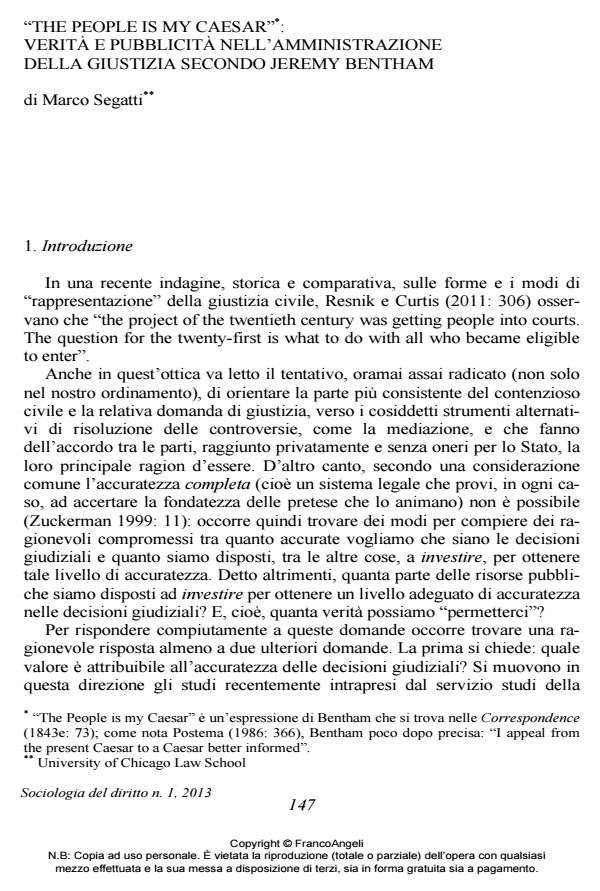"The people is my Caesar": truth and publicity in the administration of justice according to Jeremy Bentham
Journal title SOCIOLOGIA DEL DIRITTO
Author/s Marco Segatti
Publishing Year 2013 Issue 2013/1
Language Italian Pages 12 P. 147-158 File size 188 KB
DOI 10.3280/SD2013-001011
DOI is like a bar code for intellectual property: to have more infomation
click here
Below, you can see the article first page
If you want to buy this article in PDF format, you can do it, following the instructions to buy download credits

FrancoAngeli is member of Publishers International Linking Association, Inc (PILA), a not-for-profit association which run the CrossRef service enabling links to and from online scholarly content.
This article discusses certain aspects of Bentham’s theory of judgement and analyses the close relationship between the value of the accuracy of judicial decisions and the need for them to be justified publicly at the conclusion of public proceedings. Three dimensions of the value of accuracy are identified, starting from three functions of the principle of publicity. Publicity can be construed as a tool of accuracy, in which case the value of that accuracy coincides with the achievement of the aims that the legislator has attributed to the substantial law being applied. Secondly, publicity may serve as a means for transforming governmental practices, in which case the accuracy of the government’s decisions describes a particular conception of the relations both between citizens and between the authorities and their citizens. Lastly, publicity constitutes a test of accuracy, in which case it provides an opportunity for evaluating the consequences of the application of the substantial law in question
Keywords: Bentham, Judgement, Accuracy, Publicity
Marco Segatti, "The people is my Caesar": verità e pubblicità nell’amministrazione della giustizia secondo Jeremy Bentham in "SOCIOLOGIA DEL DIRITTO " 1/2013, pp 147-158, DOI: 10.3280/SD2013-001011